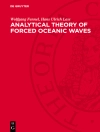This volume presents innovative work on innovative methods, tools and practices aimed at supporting the transition of Asian and Middle Eastern cities and regions towards a more smart and sustainable dimension. The role of the built and urban environment are becoming more pronounced in Asia and Middle East as the regions continues to experience rapid increase in population and urbanisation, which have only led to an increase in environmental degradation but also rise in energy consumption and emissions. Individual chapters covers timely topics such as sustainable infrastructure, transportation, renewable energy, water and methods supporting an innovative and sustainable development of urban areas. Real-world examples are presented to highlight recent developments and advancements in design, construction and transportation infrastructures. The volume is based on the best contributions to the 2nd Geo MEast International Congress and Exhibition on Sustainable Civil Infrastructures, Egypt 2018 – The official international congress of the Soil-Structure Interaction Group in Egypt (SSIGE).
Inhaltsverzeichnis
Implementing occupancy sensor lighting controls in a lab classroom.- Urban regeneration and resilience: evaluating the impact of regeneration projects on social resilience.- Strategic assessment for the sustainable combined sewer overflow problem in peoria, illinois, usa.- Sustainable and green solutions to the city of peoria combined sewer overflow problems.- Long-term strategies for sustainable funding of infrastructure in the usa.- Strategies for sustainable funding of infrastructure in illinois, usa.- Risks affecting the delivery of construction projects in egypt: identifying, assessing and response.- Riam; a developed risk impact assessment model for risk factors affecting large construction projects.- Perception of consultants and contractors to performance factors of construction projects.- Utilization of project management tools for construction project success.- Text and information analytics for fully automated energy code checking.- Integrating bim-based simulation techniquefor sustainable building design.
Über den Autor
Dr. Mohamed Farouk Shehata has more than 25 years’ experience of many mega, large, and small projects in the Middle-East. He was the leader of the multidisciplinary engineering works, so he has gained experience in the architectural, master planning, urban planning, project management, project preparations, decision making, and value engineering of the projects. In addition to all previous manager works, he has a professional expertise in the Geotechnical, structural, and bridge engineering.
Dr. Fernanda Rodrigues received his Ph D in Civil Engineering from the Universidade of Aveiro and holds a specialization in BIM Management. Is the responsible and lecturer of the curricular unities of: Site Construction Management and Legal Requirements, Construction Management and Safety Coordination, and Construction Modeling (BIM) in the Civil Engineering Department of University of Aveiro. Assessment of buildings’ deterioration state, development of a methodology to evaluate the deterioration /maintenance condition of buildings, energy efficiency of buildings, Facility Management and Building Information Modeling are some of the fields of her research. She is author and co-author of various publications in National and International Scientific Journals and Conferences.












